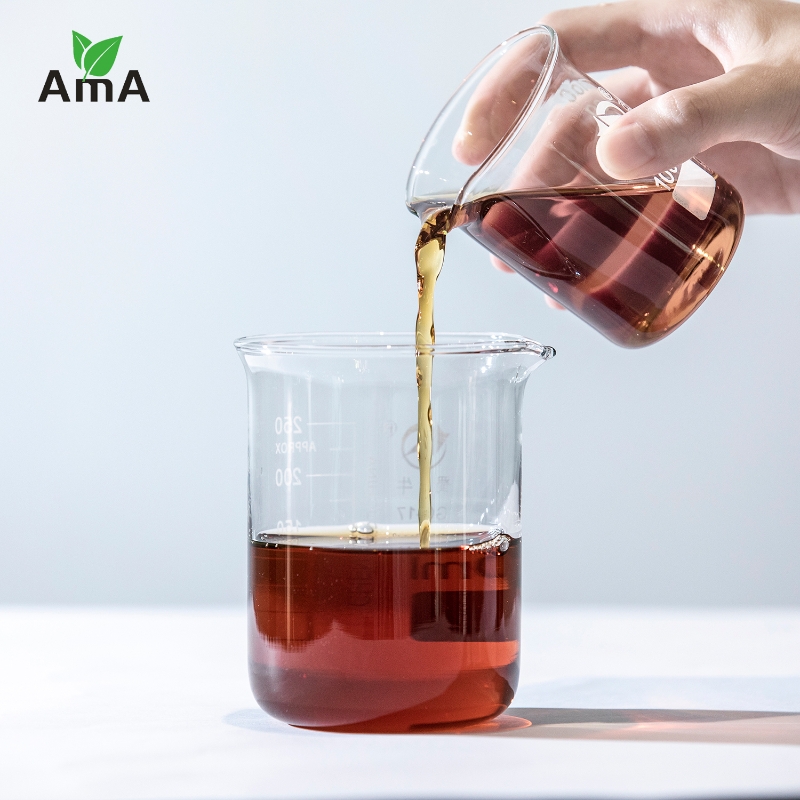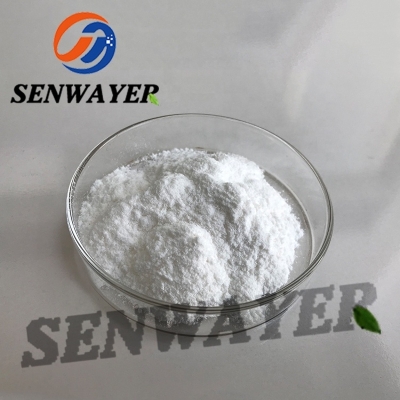-
Categories
-
Pharmaceutical Intermediates
-
Active Pharmaceutical Ingredients
-
Food Additives
- Industrial Coatings
- Agrochemicals
- Dyes and Pigments
- Surfactant
- Flavors and Fragrances
- Chemical Reagents
- Catalyst and Auxiliary
- Natural Products
- Inorganic Chemistry
-
Organic Chemistry
-
Biochemical Engineering
- Analytical Chemistry
- Cosmetic Ingredient
-
Pharmaceutical Intermediates
Promotion
ECHEMI Mall
Wholesale
Weekly Price
Exhibition
News
-
Trade Service
More and more studies have begun to pay attention to the effect of anti-oxidative stress on liver fibrosis.
Natural products have shown the potential to treat liver fibrosis due to their good antioxidant effect and low side effects
.
In the next part, we will continue to introduce natural products that have anti-oxidative stress and improve liver fibrosis
[ Last review ]
Alkaloids
Matrine is an alkaloid extracted and isolated from the root of Sophora flavescens.
It has anti-inflammatory, immunomodulatory, anti-viral and anti-liver fibrosis effects
.
Matrine can significantly reduce the level of hyaluronic acid and hydroxyproline in the serum of liver fibrosis model rats, and improve the level of liver fibrosis in rats
Berberine is a natural alkaloid found in many medicinal plants
.
The study found that berberine (50 mg/kg) intragastrically administered carbon tetrachloride-induced model mice for 6 weeks can reduce the activity of aspartate aminotransferase and alanine aminotransferase in rat serum, and enhance liver tissue Antioxidant enzyme activity, thereby improving liver fibrosis
Papaverine apricot can reduce the levels of aspartate aminotransferase and alanine aminotransferase in plasma of rats with liver fibrosis, and the expression of α-smooth muscle in liver tissues
.
Papaverine can also reduce the levels of TGF-β1, tissue inhibitor of metalloproteinase 1, and nitric oxide synthase mRNA levels, up-regulate the expression of metallothionein genes, and improve liver fibrosis
Betaine is an alkaloid extracted from sugar beets
.
Betaine intragastric administration of carbon tetrachloride-induced liver fibrosis model rats for 14 weeks can reduce the protein levels of triacylglycerol, α-SMA, TGF-β1 and metalloproteinase 2, tissue inhibitor of metalloproteinase in rats.
Polyphenols
Curcumin is a polyphenol compound extracted from turmeric
.
After intragastric administration of curcumin in liver fibrosis model rats, it was found that it can reduce the content of ROS in rats, reduce the activity of malondialdehyde, TGF-β1 and hepatic stellate cells, thereby improving liver fibrosis
Resveratrol is a polyphenol compound isolated from Polygonum cuspidatum.
It has anti-aging, anti-cancer, anti-inflammatory and anti-oxidant effects
.
Studies have found that after intragastric administration of resveratrol (10 mg/kg) to liver fibrosis model rats for 7 days, it can improve liver fiber in rats by reducing the level of malondialdehyde and enhancing the activity of antioxidant enzymes in liver tissues. .
Another study found that after injection of resveratrol to methylamine-induced liver fibrosis model rats, it can significantly reduce the levels of injury markers (malondialdehyde, superoxide dismutase, and membrane-bound enzymes) to improve liver Fibrosis
Rosmarinic acid is a kind of natural polyphenol, which exists in many kinds of plants, especially the plants of Ulrichiaceae and Lamiaceae
.
After intragastric administration of rosmarinic acid to carbon tetrachloride-induced liver fibrosis model rats, it can reduce 3-nitrotyrosine and thiobarbituric acid reaction product (TBARS), a marker that measures lipid oxidation levels.
Other compounds
Salidroside is a compound extracted from Rhodiola
.
Related studies have found that after oral administration of salidroside to carbon tetrachloride-induced liver fibrosis model rats, the accumulation of lipids in the rats' body is reduced, and the activity of antioxidant enzymes is enhanced, thereby preventing the production of liver free radicals and improving liver fiber
.
Emodin is a compound extracted from rhubarb, which has anti-inflammatory, antioxidant and antibacterial activities
.
Related studies have found that emodin can reduce the levels of ROS, nitric oxide, and malondialdehyde in rats after intragastric administration of emodin, and increase the content of glutathione, thereby improving liver fibrosis
.
In addition, after intragastric administration of emodin to carbon tetrachloride-induced liver fibrosis model rats, the expression of TGF-β1 transporter, Smad family mRNA and protein in the rat decreased, thereby reducing the expression of TGF-β1 pathway in the liver.
Thereby improving liver fibrosis
.
Osthole is a compound extracted from the fruits of Cnidium, which has antioxidant, anti-inflammatory and other activities
.
Relevant studies have found that osthole (10 mg/kg) can improve liver tissue structure by reducing the levels of aspartate aminotransferase and alanine aminotransferase in rat plasma after intragastric administration of hepatic fibrosis model rats for 4 weeks.
So as to improve liver fibrosis
.
In addition, Osthole can also reduce the expression of hepatic fibrosis-related genes (Smad family), weaken the migration of hepatic stellate cells induced by TGF-β1 to exert antioxidant effects and improve liver fibrosis
.
Oxidative stress can destroy the structure and function of biological macromolecules such as nucleic acids, proteins, lipids and carbohydrates
.
In liver cells, reactive oxygen species (ROS) are mainly produced by electron transport chains in mitochondria and during protein folding
.
After the production of oxidative stress in the body, excessive ROS can cause inflammation in the liver, which in turn leads to liver damage and liver dysfunction
.
After liver injury, Kupffer cells, endothelial cells and inflammatory cells all secrete transforming growth factor β1 (Transforming growth factor-β1, TGF-β1), which activates hepatic stellate cells and further leads to the production of extracellular matrix, which leads to the liver Fibrosis
.
Hepatocytes and hepatic stellate cells have a tight two-way regulation mechanism.
On the one hand, damaged liver cells, activated Kupffer cells and infiltrating neutrophils can produce excessive ROS, inflammatory cytokines and TGF-β1, thus Activating hepatic stellate cells leads to overproduction of extracellular matrix and metalloprotein specific inhibitors; on the other hand, activated hepatic stellate cells will produce ROS to destroy hepatocytes and activate Kupffer cells; in addition, TGF -β1 can also induce the expression of hepatic stellate cells themselves, thereby forming an autocrine circuit, thereby reactivating the hepatic stellate cells and leading to the accumulation of extracellular matrix
.
The antioxidant defense system of liver cells is composed of related antioxidant enzymes and related cytokines, including superoxide dismutase, glutathione peroxidase, glutathione reductase, glutathione transferase, Heme oxygenase and catalase are enzymes mainly involved in the construction of antioxidant defense system
.
Cytokines in related signaling pathways such as nuclear transcription factor kappa B (NF-κB) are also involved in the antioxidant defense system of liver cells
.
Therefore, these enzymes and related activating cytokines can enhance the antioxidant defense system of liver cells, thereby increasing their ability to resist oxidative stress
.
In recent years, the relationship between oxidative stress and liver fibrosis has become a research hotspot, and drugs that improve liver fiber based on the anti-oxidative stress effect have also become the key to clinical research
.
Natural products have stable efficacy and high safety and tolerability
.
Therefore, natural products that improve liver fibrosis based on anti-oxidative stress are gradually being discovered and studied
.
Natural products mainly exert anti-oxidative stress effects by enhancing the activity of superoxide dismutase and glutathione peroxidase in liver tissue, reducing the activity of ROS and the level of malondialdehyde, and inhibiting the NF-κB signaling pathway.
Improve liver fibrosis
.
However, the current research on the improvement of liver fibrosis by natural products based on their anti-oxidative stress effects is mainly based on animal models.
In follow-up studies, more clinical applications should be explored to provide references for the clinical use of natural products in the treatment of liver fibrosis
.
Reference
[1] Li Gui, Dong Songtao, Dong Zhanjun.
Research overview of natural products for improving liver fibrosis based on anti-oxidative stress[J].
Chinese Pharmacy, 2019, 30(19).
[2]Xiao Zhiyong, Wang Xiaolin.
Progress in the treatment of liver fibrosis with nanoparticles and natural products[J].
Electronic Journal of Integrated Traditional Chinese and Western Medicine Cardiovascular Diseases, 2020, v.
8(36):36-37.
About the author: Michong, a drug quality researcher, has long been committed to drug quality research and drug analysis method verification.
Now he works for a large domestic drug research and development company, engaged in drug inspection analysis and analysis method verification







